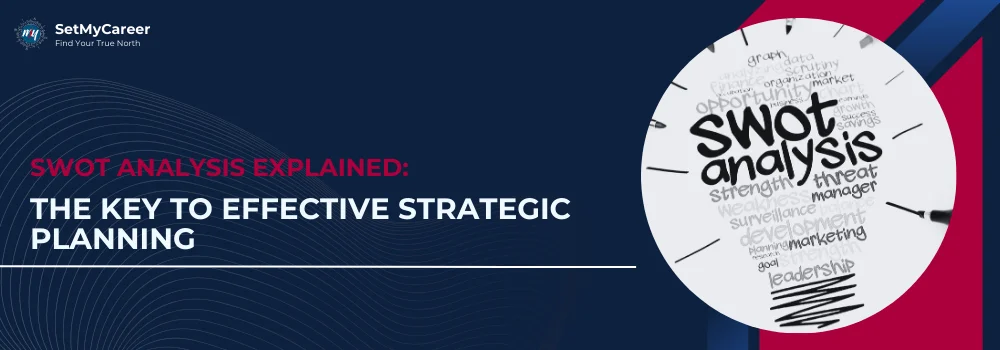Published by Jyothi Patil on 27 September 2024
Content Strategist | Editorial Team Member
Jyothi Patil is a skilled writer with a strong background in English literature, which she applies to crafting engaging content across various platforms. From writing blogs for her website and guest posts to creating pieces on Medium and Substack, Jyothi excels in making complex ideas easy to understand.
Harness the potential of SWOT Analysis to improve decision-making in your career and business ventures.

Think about a time when you had to make a tough decision in your career or business. Perhaps you were weighing new job offers, considering a shift in your career path, or planning to launch a new product. In moments like these, it’s easy to feel overwhelmed by the choices and possibilities. SWOT analysis, often recommended by career coaches, steps in as your guiding star. By assessing your Strengths, Weaknesses, Opportunities, and Threats, you can break down complex situations into manageable insights. It’s like having a personalized map that helps you navigate through uncertainties, enabling you to make clear and confident decisions. Let’s delve into how this effective tool can transform your strategic planning process.
SWOT analysis is a handy tool for understanding your situation better, whether for career, business, or personality development. The acronym stands for Strengths, Weaknesses, Opportunities, and Threats, acting like a quick check-up for your plans or ideas.
By listing these four aspects, you can get a clear picture of where you stand and what steps to take next. It’s a simple yet powerful way to make better decisions and set yourself up for successful career!

Turn weaknesses into opportunities with SWOT
Plan Like a ProSWOT analysis is more than just a one-time task; it’s an essential tool for planning and improving over time. Here’s why it matters:
In short, SWOT analysis acts as a guiding map for your plans, helping you stay focused, make informed decisions, and adapt to changes along the way.
In a world that keeps changing, using tools like SWOT analysis can help you make better choices for your career or business. By looking at your strengths, weaknesses, opportunities, and threats, you can develop strategies that set you up for success. Whether you’re a student exploring new paths or a business owner aiming for growth, SWOT analysis is a valuable resource. At SetMyCareer, we’re here to support you every step of the way. Reach out to our experts today and take charge of your future!
No. 14/595, 1st Floor, Nanjappa Reddy Layout, Koramangala 8th Block, Bangalore 560095